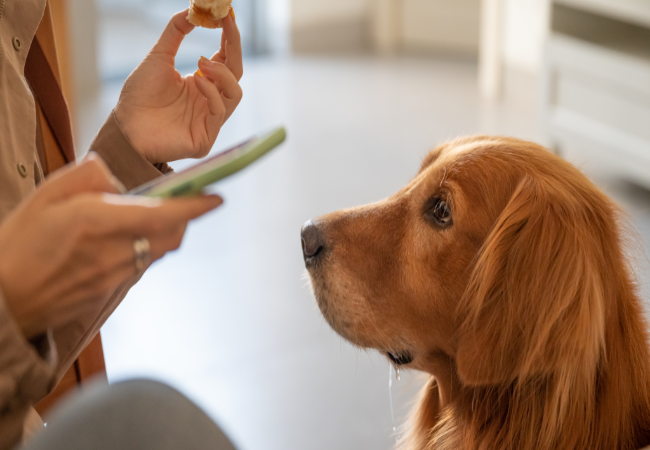A Vet’s Guide: Why Is My Dog Drooling Excessively but Refusing to Eat? (2025) 🤤🚫🍽️

In this article
A Vet’s Guide: Why Is My Dog Drooling Excessively but Refusing to Eat? (2025) 🤤🚫🍽️
By Dr. Duncan Houston BVSc
Hello—I’m Dr Duncan Houston BVSc, veterinarian and Ask A Vet founder. Excessive drooling (ptyalism) paired with a refusal to eat is a serious red flag. In this vet‑approved guide, I’ll walk you through:
- ⚠️ Key causes: oral pain, nausea, toxins, GI/systemic disease
- 🧭 Diagnostic steps your vet will take
- 🔧 Treatment strategies and home-care support
- 🛠️ Integrated tools: Ask A Vet telehealth
1. Common Causes
🦷 Oral or Throat Pain
Broken teeth, ulcers, tumors, foreign bodies, or infections can cause drooling and reluctance to eat due to pain.
🤢 Nausea or GI Upset
Nausea—from gastritis, pancreatitis, motion sickness—stimulates saliva production and suppresses appetite.
☠️ Toxins or Chemical Irritants
Exposure to caustic agents (cleaners, plants, medications) leads to hypersalivation, pain, and loss of appetite.
🧬 Systemic or Neurological Disease
Neurologic issues, kidney/liver disease, rabies, distemper can all disrupt saliva control and appetite.
📛 Other Causes
Heat stroke, esophageal issues, seizures—all may present with drooling and anorexia.
2. Other Signs to Monitor
- Pawing at the mouth or holding the head awkwardly
- Food drops when trying to chew
- Bad breath, ulcerated gums, facial swelling
- Vomiting, diarrhea, lethargy
- Blood in saliva, foaming, bloody vomit
These strongly suggest urgent veterinary care.
3. Urgent Vet Diagnostic Steps
- Oral/stomach exam under sedation—identify ulcers, broken teeth, foreign objects.
- Dental X-rays, oral imaging for hidden issues.
- Bloodwork + organ panels to assess metabolic causes.
- GI imaging/endoscopy if nausea or obstruction is suspected.
- Toxin screen if ingestion is suspected.
4. Treatments
- Oral care: Extract infected teeth, remove debris/growths.
- Nausea/GI: Anti-nausea drugs (Cerenia, ondansetron), bland diet, fluids.
- Toxin management: Remove agent, administer neutralizers or activated charcoal.
- Systemic disease: Treat underlying condition (e.g., liver support, neurologic evaluation).
- Pain relief: NSAIDs or opiates if prescribed.
5. Home & Telehealth Care
- Ask A Vet Telehealth: Upload photos/videos of drooling, oral detail, eating attempts; get guidance on next steps.
- Soft or wet meals: Serve palatable offerings—warm broth, canned diet, hand-feeding.
- Oral hygge: Rinse mouth gently with water or vet-approved antiseptic after meals.
6. Real Vet Case
Case: “Bella,” 5-year-old Boxer mix
Bella had sudden drooling and appetite loss. Oral exam under mild sedation found a broken molar and gum infection. Tooth extracted, antibiotics prescribed, and her meals softened with broth. Ask A Vet helped monitor healing. She resumed eating within days and drooling resolved by Day 5.
7. FAQs
-
Is occasional drooling normal?
Yes—especially in drooly breeds or when excited by food. But persistent drooling plus not eating is not normal. -
Can I just withhold food?
No—this can worsen GI issues. Offer small, frequent soft meals unless vomiting. Seek vet advice first. -
How fast to act?
If drooling persists over 24 h or with other symptoms, contact your vet or emergency facility immediately.
📌 Final Thoughts from a Vet
Drooling with refusal to eat is a veterinary red flag—likely pointing to pain, nausea, toxin exposure, or systemic disease. Rapid assessment, targeted diagnostics, and early treatment are crucial. In the recovery phase, Ask A Vet telehealth provides physical comfort during healing in 2025. Don’t wait—your dog needs care. 🐾❤️






